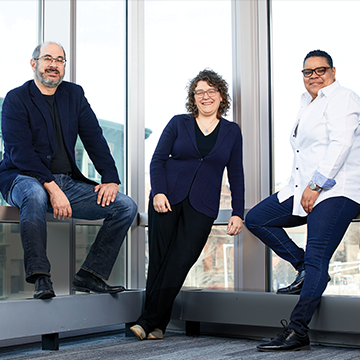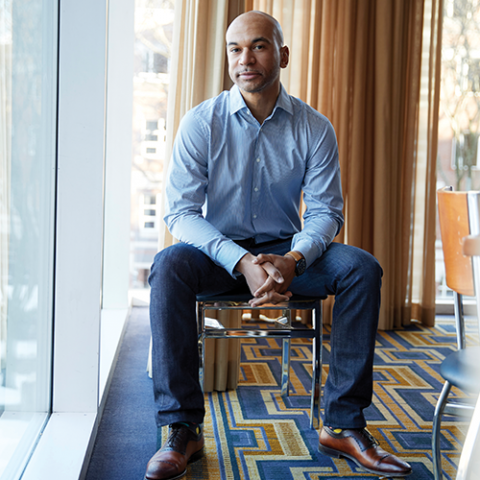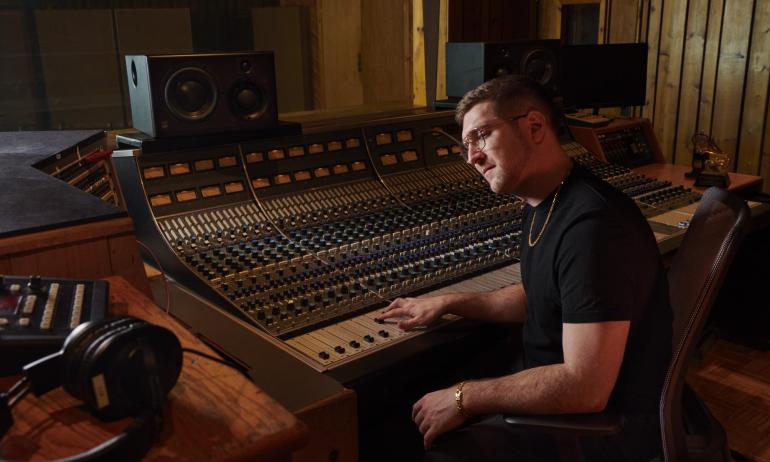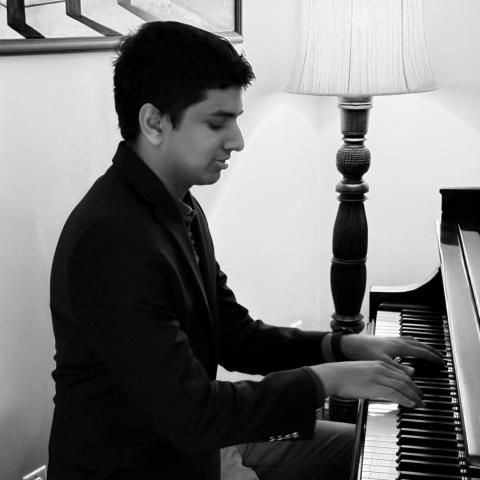Looking Ahead with Berklee’s New Department Chairs


Guitar: Kim Perlak
“Guitar playing evolves constantly,” Kim Perlak says. “I don’t think there’s anybody that looks at the guitar and says, ‘Oh, it’s stuck.’” So as she steps into the Guitar Department’s top leadership role after five years as assistant chair, she says the department will remain attentive to the natural stylistic evolution and diversity of the instrument while at the same time continuing to provide a deep education in the fundamentals of a musical career. “The ‘Berklee style’ is having an equal respect for tradition and innovation in guitar playing,” she says. “Knowing your instrument, learning how to learn, and understanding how to be a good colleague—those things are constants.”
An accomplished performer and educator in the American classical style, Perlak earned a doctorate in music from the University of Texas, Austin, and holds a master’s degree in music from Yale University. Perlak’s work, which combines guitar performance, music history, and community outreach, has been featured on NPR and PBS and recognized by the U.S. House of Representatives. She is the first woman to lead the Guitar Department, which serves as the principal instrument group for more than 1,000 students.
When it was founded in 1961, the department was the first of its kind, and Perlak stresses the deep responsibility and privilege she feels in “carrying on the tradition that has been built so beautifully by so many of our faculty and students, and then taking a look at where we’re all going together.” In a department where it’s not unheard of to spot four generations of faculty and students eating together in the common area, this spirit of ongoing community and collaboration makes perfect sense. “This belongs to you,” Perlak recalls saying to a new student. “This is our department together.”
Woodwinds: Walter Smith III
“There are a million things that the modern woodwind player needs to be able to do,” says saxophonist Walter Smith III, who joins the Woodwind Department in May. “Read, write horn lines, play in a section, be a soloist—the list is endless.” And the best way to prepare students for these myriad music roles, Smith says, is to partner them with faculty who have “a commitment to remaining relevant in the field.” Faculty advise students on every facet of the musical profession, so it’s important that they remain in contact with it, understanding “the experience of being in a recording studio this year as opposed to last year—how you’re recording saxophone now, what kind of microphones you’re using, how many mics.” He says one of his early goals will be to seek support for faculty collaborations that encourage this ongoing artistic productivity.
Smith has distinguished himself as one of the most admired saxophonists of his generation, both as a band leader and as a member of groups such as the Terence Blanchard Quintet, Eric Harland’s Voyager Band, and the Ambrose Akinmusire Quintet. He has played at Carnegie Hall and the Kennedy Center and has appeared on more than 100 recordings. Smith studied at Berklee, Manhattan School of Music, and the Thelonious Monk Institute of Jazz. He returns to Berklee from the Indiana University Jacobs School of Music, where he was an associate professor.
As a Berklee alumnus, Smith recalls the powerful influence of studying with George Garzone and Bill Pierce, whose styles he could relate to. “To this day, some of what we did in lessons I’m still using, not only in my playing and in my writing, but in my teaching as well.” It’s these kinds of partnerships, he says, with faculty who understand both the musical styles and the industry expectations “unique to a student’s hopes and dreams for their career” that equip Berklee students for success.
Piano: Dave Limina
“We have the foremost modern jazz piano educators in the world,” says Dave Limina. “And all of our faculty also have diverse abilities in styles other than modern jazz.” As the Piano Department’s new chair, Limina intends to build on this tradition of excellence and diversity, expanding the program to include more offerings for in-demand techniques and styles.
Limina’s own musical experience attests to the world-class caliber of his department. Among his many accomplishments as a pianist, keyboardist, and Hammond organist, he has toured worldwide as a member of the Blues Music Award-winning band Ronnie Earl & the Broadcasters, and has shared the stage with legends such as B.B. King, Chuck Berry, and Lori McKenna. He also served as the keyboardist and conductor for the first national tour of the Broadway musical Rent.
For more than 20 years, Limina’s Hammond organ lessons have been sought after by Berklee students, and he authored the instrument’s definitive instruction book, Hammond Organ Techniques. “It’s ergonomically a very different instrument than the acoustic piano or synthesizer,” he says. “It requires deep knowledge to make it do the things that it can do.” He believes there’s room to grow the department’s Hammond organ offerings—especially considering the substantial market for gospel musicians with Hammond organ training. “We want to establish Berklee as a place where people can come to study specifically gospel styles.”
Limina is eyeing other new opportunities as well. He says he’d like to expand programming for sight-reading and comping, explore more ways to address performance anxiety, and train students in multikeyboard performance techniques for touring and Broadway shows. “A lot of Berklee people are finding work on Broadway,” he says, and he wants to ensure that his department’s students have all the technological and practical know-how to succeed there.
Tanya Darby: Brass
“I’ve been a longtime admirer of Berklee,” says Tanya Darby, the Brass Department’s new chair. “The school always makes a point of being on the cutting edge not just of technology but of pedagogy and academics as well.” Darby is new to the campus community this spring and looks forward to finding ways to connect her students to the full range of Berklee’s resources: “At how many schools can you actually play in a studio orchestra and record in world-renowned facilities right on campus—what school boasts this type of amazing faculty?”
Darby knows well what it takes to succeed as a professional brass player in today’s industry. As a performer, she has played trumpet with a wide array of ensembles, including the Vanguard Jazz Orchestra and the Jazz at Lincoln Center Orchestra, and with artists such as Paquito D’Rivera and Aretha Franklin. She also earned degrees in jazz performance from Rutgers University and Manhattan School of Music. Before coming to Berklee, she held teaching positions at Temple University, the New School in New York City, and most recently at the University of North Texas.
Darby sees potential for fruitful collaborations between her department and other programs across campus. For example, she says, “We have students who would definitely benefit from playing in a musical theater production at the Conservatory, to get that Broadway studio pit experience.” She believes the variety of course offerings and faculty expertise at Berklee could give students in her department an edge as they enter an increasingly multifaceted music industry. “The days of just showing up with your horn are numbered,” she says. A horn player today has to understand the full range of available technological and performance techniques, as well as the business side of music publishing and ownership. “To be marketable you must be well-rounded, and you must be versatile,” Darby says. She plans to keep building this adaptability into the work of her department.




